#as you can see these days i read queer books almost exclusively
Explore tagged Tumblr posts
Text
Storygraph Wrap-Up 2024
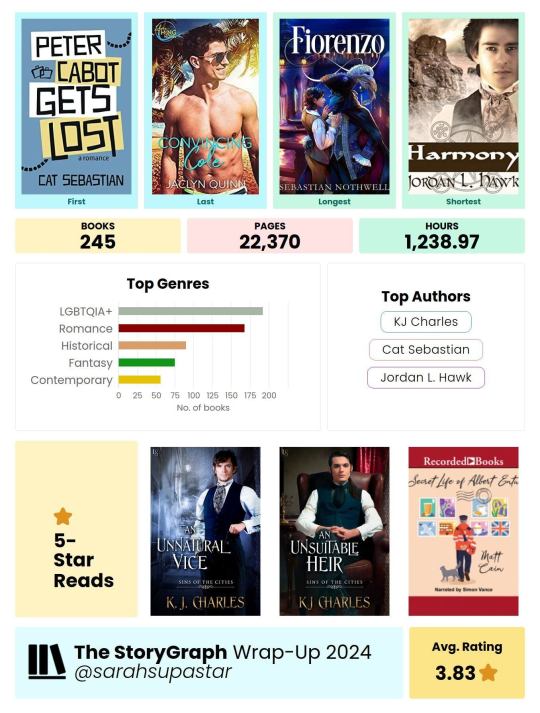
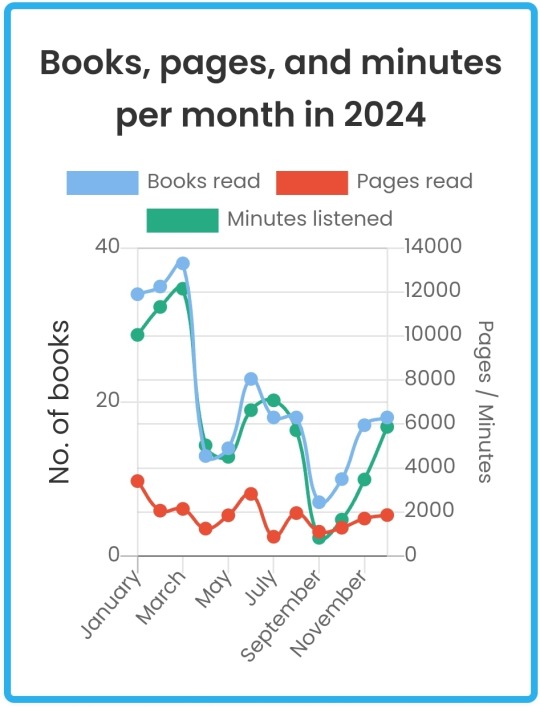
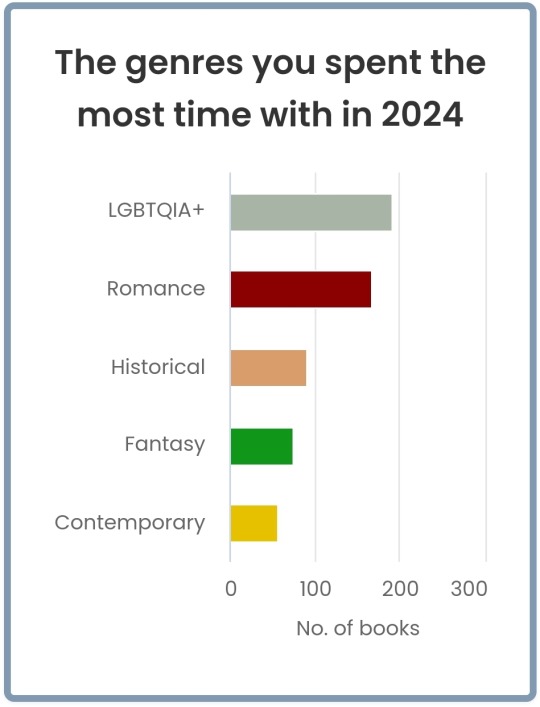
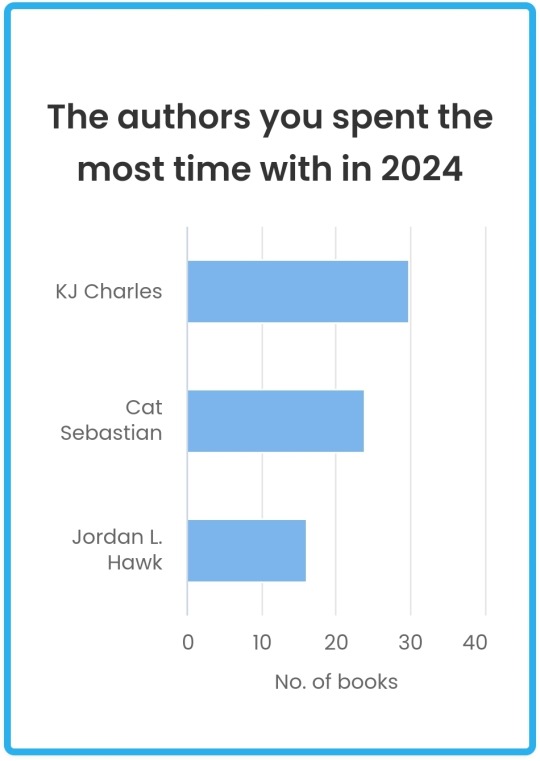
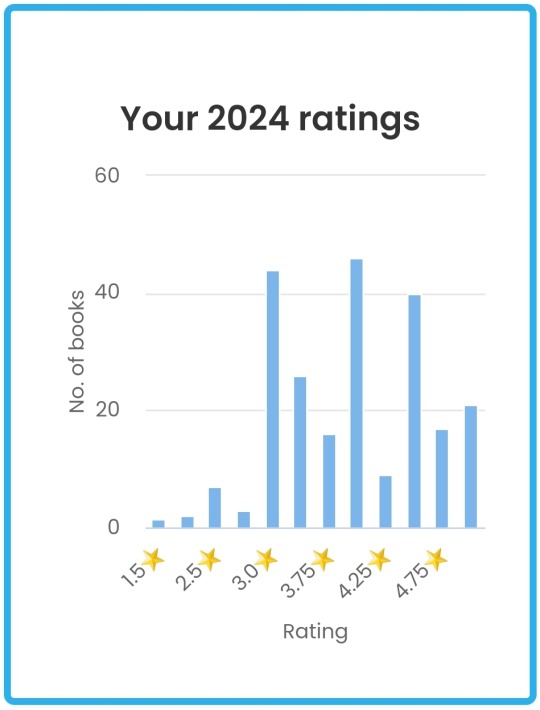
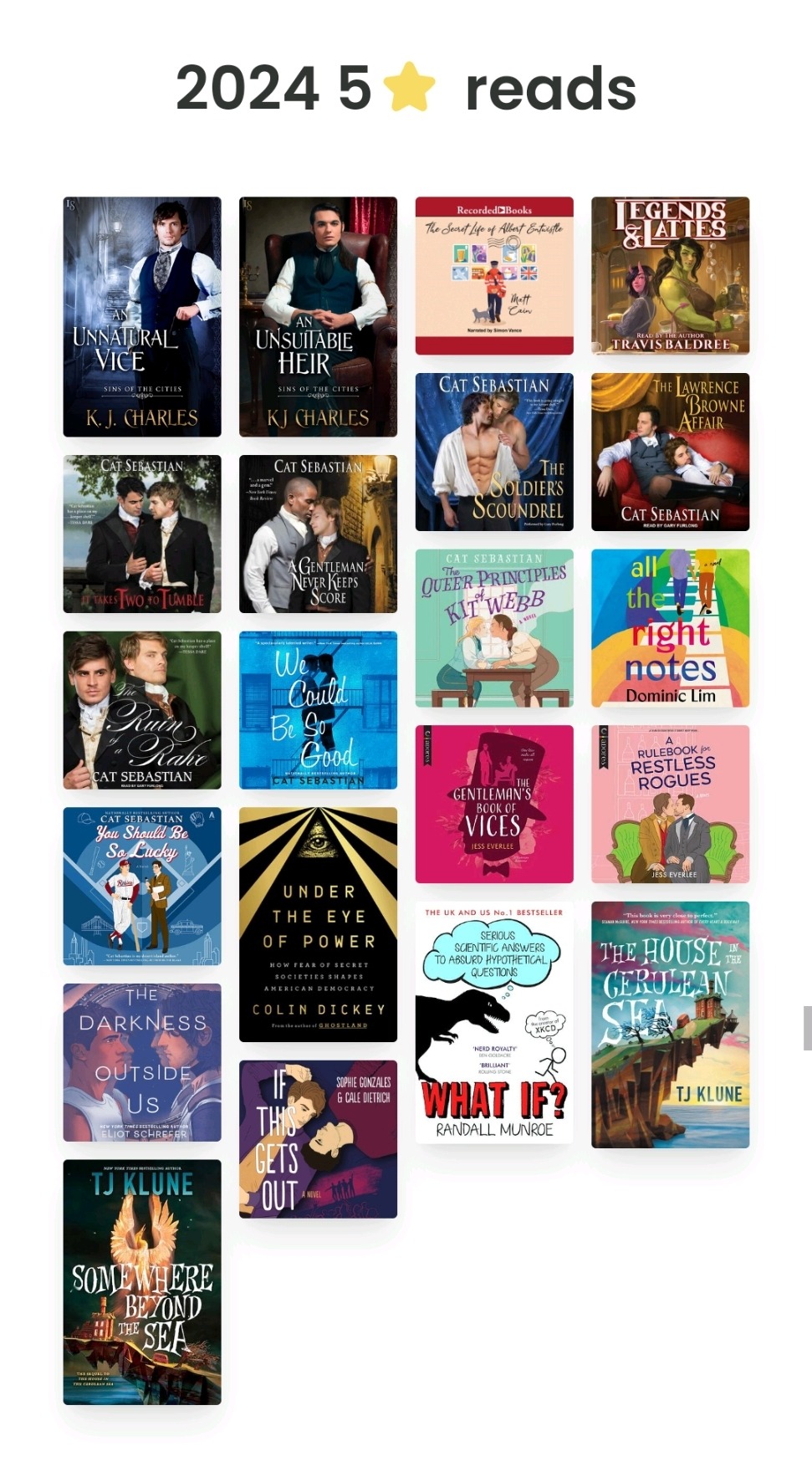
#storygraph#2024 wrapped#books#book recs#same top 2 authors as in 2023#clearly i have some favorites#storygraph wrapup#storygraph wrapped#bumped several books up to 5 stars since i loved them enough to reread them this year#as you can see these days i read queer books almost exclusively
0 notes
Text
★ Marauders (mostly wolfstar) fics I have enjoyed recently ★
I think most people are already familiar with these, but I figured I’d compile a list for at least my own sake, if not for the fuck of it. No particular order, just whichever one popped into my mind first. Also I almost exclusively read regular magical fics, not muggle aus, though sometimes I will branch out.
1.) The Horcrux Hunt - lostmy_keys
He is a Slytherin, a Black, and an ex-Death Eater. Of course he makes it out of the cave.
Regulus sets out to destroy the Dark Lord's Horcrux with no one but a house-elf to help, until he realises his task is bigger than he alone can handle. Reluctantly he turns to the only man Voldemort fears for assistance - Dumbledore - who loans out his pet wolf for the job, much to Regulus's dismay. Together they embark on a hunt for Horcruxes - a long and arduous journey that both makes friendships and destroys them. And a few people get hurt along the way.
Slowburn Wolfstar, Regulus character development, a very flirty (but platonic) Regulus and Remus friendship, and a canonically manipulative Dumbledore.
This is by far one of my recent favourites. It’s too good. I’m not super into jegulus, but if that’s your thing, the sequel has them as a kind of background development :]
2.) Let Nothing You Dismay - montparnasse
There are a few things Sirius really didn't count on for Christmas of 1979. The extreme sexual confusion is one of them; Remus Lupin is approximately seventy-eight of the rest.
I bookmarked this with a note saying “this writing style is gorjus. Gongepus” at 1:30 in the morning, and that’s all I have to say about that.
3.) disintegration - moonymoment
Okay I won’t even bother putting the summary here, almost everyone has read it, it’s fantastic. Knife cutting vampire themed sexual tension, kak long too. Sound good? Lekker. Thought so.
4.) Stealing Harry (and its subsequent cinematic universe) - copperbadge
On a dark night long ago, Sirius Black took a wrong turn and never found Peter Pettigrew. Instead of Azkaban, Sirius settled down in Little Whinging to keep an eye on his godson, and hired Remus Lupin to run his bookshop for him. Then one day when Harry was eight, Sirius found out how the Dursleys treated him, and stole him away.
I’m going to make a whole separate post about this one because it’s a work of art. It’s so sweet. Ahh. It’s an iconic old series too, started before I even existed. It’s been one of my favourite things as of late. I wish it had been completed, but I also love it as it is, and I don’t feel I need any more than that. The first story is beautiful, but frankly it’s the alternative universe which comes after that I keep rereading. So so so so so good.
5.) Remain in Light - veeagainst
What if Sirius Black didn’t die? It’s been done many times. Here’s my take on it.
One of the best “wolfstar kind of adopts Harry” sorts of stories in my opinion, and done so in such a graceful way too. Blood sweat tears and six whole years (!!!!) of writing went into this thing and you can really see how no word was wasted. What a beautiful story
6.) The Bent - earlybloomingparenthesis
1985, London. The wizarding queer art scene revolves around a gallery called the Bent, where conceptual artist Remus Lupin and photographer Sirius Black exhibit their works, and a club called the Bush, where they spend time with Jane and Lily Potter, who work at a nearby heath clinic. Although war with Voldemort was averted, the wizarding world is still simmering with tension. In the face of increasing intolerance and calls for censorship, Remus’ art takes a riskier, more political turn, and he must figure out how to balance self-expression and safety. Also, he might be falling in love with his best friend.
It’s been a while since something ive read has caused my to need to go on a walk and just think. This story will make you do that. Queer truths and families and mess and art. That’s it that’s the book. It’s one of the nine fics I’ve thrown into my “lifechanging fanfics” collection and it’s there for a REASON! You will not regret reading it.
#ok that’s it!#I’ll probably make another one of these lists at some point but for now take my six beloveds#marauders#atyd#wolfstar#fic recs#wolfstar recs#rec list#ao3
18 notes
·
View notes
Note
I was listening to another podcast at some point a while back where they had an interview with you guys to advertize re: dracula coming out. And you guys said some stuff about Lucy that hit a weird nerve with me as a history buff.
So the VA described her as polyamorous, and it triggered some conversation about how her character gets pretty maligned for it. And that last part is an adaptation issue not present in the original text.
See, victorian era courtship did not come with a presumption of exclusivity the way modern dating does. You were not off the market until you were formally engaged to be married. So the general gist of it for upper and middle class folks (like the Dracula characters most likely are) is that there is this thing called the social season. And during the season there would be all kinds of parties and events where you would meet people. And the general structure was that if you went to a dance, you should dance with a lot of different people. Get a sense of the eligible bachelors/bachelorettes. And if you were a young man, you would be expected to go and visit each of the young women you danced with that night at some point during the week after. If you hit it off, you would then start courting (visiting back and forth attending other events together etc). But, as I said above, it wasn't exclusive. So a man would court a few women, and a woman would be pretty disappointed to only be courted by one man. As the season went on couples would get engaged (anding any other ongoing courtships).
So Lucy's situation, in its original context, goes something like this: Lucy is pretty and charming. A perfect victorian maid. She has many suitors. Three of them decide she's the perfect women for them. They each want to pop the question but they are good gentlemen so they agree to all ask her the same day so she can choose between them on her own terms. She is thrilled because of course she is. Any woman in her position would be! But! Before she can make her choice Dracula comes to steal her away. She gets terribly sick and dies. But then she is not dead after all. She came back all wrong and corrupted. Even such a bright, innocent, young woman as Lucy is not immune! It's tragic what she becomes.
By the time early film adaptations roll around though, courtship was mostly replaced by dating especially in America where it hadn't been so institutionalized. And now there is an assumption of exclusivity. Those poor men being strung along by that harlot Lucy when in the end there can be only one husband. No wonder she fell victim to Dracula's charms! And like, that was the exact opposite of the point in the books. But the culture was too different by that point to read the same way. So Hollywood made Lucy an example instead of a victim.
But yeah. I heard the polyamorous comment, and had a weird mix of "yay poly representation! That rarely happens," and "put that woman back in context, or so help me!" So when I saw you guys had a blog, I had to send a little mini rant. Feel free to disregard.
Thanks for the historical context! It is hard with historical texts to keep from bringing your modern ideas to our interpretations, but as an almost completely queer crew, it was hard to ignore the subtext in:
LUCY: Why can't they let a girl marry three men, or as many as want her, and save all this trouble? But this is heresy, and I must not say it.
That’s what we’re talking about, we’re talking about subtext in a very sexy very queer-coded book. I believe the VA you’re talking about is Beth Eyre? As a professor, she knows this too and is playing with it in her performance. And she does brilliantly.
We’re not changing the text, as we’ve said before, we’re just having fun with what’s already there.
We’ll talk some more about this in our bonus eps, which I’m very excited about.
104 notes
·
View notes
Text
GET TO KNOW ME🤩
thank u for tagging me @skibasyndrome 🫶🏼
do you make your bed?
not ever since i read somewhere that leaving your sheets uncovered is actually good for airing it out and reducing lice risk sksk (excuses). i would if i’m a guest / at my parents’ though
what's your favourite number?
0 is pretty neat
what is your job?
an architect - in training sksksk (for the past SEVEN years but any day now guys) would very rarely self describe as a MuLtiDisCiPLinArY artist/writer/researcher if i’m feeling like a wanker or trying to impress wankers
if you could go back to school, would you?
constantly entertaining the idea of a useless phd sksks - mostly for the gender neutral title and the most distance from capitalism to be honest
can you parallel park?
no. i can only shuffle in if it’s a space for 2 cars sksk i literally used to circle the block endlessly when waiting for family to grocery shop instead of parking if there’s no 2 spaces for me to pull into
a job you had that would surprise people?
i’m not sure i have anything surprising. i sold car magazines at a book fair and i will not elaborate.
do you think aliens are real?
yes. and they’re purposefully not making themselves known to humans because they don’t wanna touch this clusterfuck with a ten feet pole
can you drive a manual car?
never ❤️ city gay refusing to drive forever😗✌🏼
what's your guilty pleasure?
pimple popping videos or in general mildly gross “satisfying” videos sksksk. i would binge until i get sick and delete them from my history so i don’t have to see any more suggested once i got my fill
tattoos?
2! 🦈🪼
favorite color?
pink and blue. i like most pinks, like them less the more purple they get, i like pastel blues and navy blues but the bright saturated ones in between not as much
favorite type of music?
i’m a pop girlie through and through - almost exclusively listen to queer and/or poc artists now. i like hyperpop, pop punk, indie pop
do you like puzzles?
i used to do so much with my mum and got pretty insane over it (like 1000 pieces sets) but not as much now
any phobias?
hmm i don’t have much Irrational fear - one would be i Hate the idea of having my back exposed i always have to sleep with my back to the wall
favorite childhood sport?
Loathe sports. i loved ice skating and it’s one of the few things i quit against my will and in another life i would’ve been a figure skater
do you talk to yourself?
ever since i’m not living with any family i need to check whether i still speak my mother tongue every now and then sksk
what movies do you adore?
i keep going back to ghibli films. my absolute favourite is howl’s moving castle
coffee or tea?
i don’t drink coffee.
first thing you wanted to be growing up?
studio ghibli animator🥹 also wanted to write full time. play orchestral percussion full time
tagging @prince-simon @cloudywilmon @ungaroyals @aro-of-artemis @angelbabysimon @tooindecisivetopickaurl
9 notes
·
View notes
Text
Queerphobia In Cobrin'Seil
Everyone in Cobrin’Seil is queer to any extent that word can mean anything in talking about my D&D setting. This is not because when you make a dude in that setting part of the character creation setting is ticking the backstory box that, at some point, he has sucked some dick or whatever, but rather is instead because Cobrin’Seil is a world where heterosexuality as you understand it was never invented.
And boy oh boy that right there opens a door, doesn’t it.
The ‘invention’ of heterosexuality is one of those terms that can confuse people because people don’t tend to think of these things as being invented. Cultural practices and roles are often things that we see as being obvious outcomes of a natural phenomena in our world, and that means we wind up imagining them as absolute and natural. That’s something really useful to cultural practices and they can create weird alienating effects when they’re demonstrated as not obviously true.
If you’re ever curious to see a different non-sexy example, ask a white person about bidets or lota. Or you know, capitalism.
Point is that when I describe ‘heterosexuality’ and refer to it as ‘invented’ I don’t mean that nobody was having boy-on-girl banging because nobody came up with the idea and the idea was invented a hojillion years ago just in time to save whatever species did that from extinction. That’s animal behaviour, putting dongs in hoohahs is a thing we’re all very used to doing as organic entities. So much so that there are a lot of animals that will try and do it with anything they interpret as a hoohah, even if it’s, say, a beanbag.
But that’s non-cultural practice, that’s things doing things transcendant of the way those actions are regarded by other members of their group. Chances are very good if you’re reading this, you share a cultural space with me on this point; you’re almost certainly going to be carrying around in your head a set of bigotries and affordances that people can have around heterosexuality, even if you don’t comply with them or value them, because the British Empire was really good at exporting its specific heterosexuality and then America refined that heterosexuality through most of the same cultural connections. The model of heterosexuality we’re talking about here isn’t even unified across that stretch of history either – non-heterosexual behaviour was tolerated extensively across chunks of both American and British culture but publically advocating for and talking about that practice was seen as vulgar (and was illegal).
What is socially accepted is determined by what is excluded from that acceptability. In our world, that acceptability tends to be tied to a serious academic structure, which is also a thing that had to be invented and if you read in your history enough you’ll find a lot of it ties back into the publication of a work by one dude, Richard von Kraft-Ebigg, who died in 1902. That’s where we get some words you may think of as ‘normal’ words, but which were Latin terms he crafted and put into a German book and we adopted them wholesale. Homosexuality, for example, or sadism. Or analingus.
We use that one every day right?
It’s also a moving target. Back in the 1920s, homosexuality wasn’t ‘has sex with men exclusively,’ it was ‘so obsessed with sex it formed a morbid fascination’ and that that focused on sex with men. Heterosexuality at that time was seen as an equally morbid fascination, a pathologised interest in straight sex. Ten years later, it lost the idea of being an obssession with it, and got the name ‘normal’ sex in the dictionary.
(You can dig into this more by reading Jonathan Ned Katz’s The Invention of Heterosexuality, if you want).
Point is, heterosexuality as you and I us the word had to be invented and named. It is a cultural practice with a meaning and associated values and expectations and at no point did it get pushed into existence in Cobrin’Seil. The word probably exists but maybe it doesn’t, and when a player uses the word to express an idea through their character, they’re expressing a different idea with different weights and vibes in the context of the cultural space they’re living in.
This kind of misalignment between player and character happens all the time. A character asks someone something and they don’t understand you so you try again in Elvish. A player doesn’t need to speak Elvish to make that linguistic hop and yet that player is completely unable to use the Elvish language appropriately. The layer of fiction smooths this over.
This doesn’t mean that a player character in Cobrin’Seil reacts to the word ‘heterosexual’ like it’s a macabre outcropping from an alien universe. It probably has some useful cognate in the world, some idea like ‘oh my primary interest is in one of the major dominant genders of my culture that I don’t share,’ and we just roll over the gap there without any need for a contextual language report. But what it also means is that no character feels the need to explicate whether they are gay or straight because in the universe that is not considered an element of culturally expressing a normal persona. You might tell someone you’re straight or gay because you want them to know your personal preferences, but that’s something that they should only really care about if the conversation is about you having some access to your interests.
Basically, in Cobrin’Seil, the assumption is that ‘people have sex with other people’ and that’s about as specific an assumption you can make. It is not the same thing as we live in, because even in our own world homosexual and bisexual and pansexual behaviour are presented as concepts in opposition to a norm, and only need definition in the context of them being behaviours that need distinction.
This means that queerphobia in Cobrin’Seil is not any kind of stated default: there is no ‘normal’ for queer people to be functional rebels against. There may be communities and spaces where queerphobia arises, but those spaces by definition are going to be insular and weird and not places with widespread state power. You can have a queerphobic space to start from but when you get into the wider world of Cobrin’Seil, you’re always going to find that the world you’re in isn’t like that.
What about the Bernean Lodges, eh, though? You, Talen, after all, invented that place (and low key named it after a church you visited) and it’s meant to be oppressive fundie churches that patrol each other. Surely they’re a bunch of homophobes otherwise how else would you, the author, get cathartic joy out of hunting them down and knifing them in the head? Well listen, first, I can be violently opposed to religious bigotry on a number of axes that draw a visceral fictional thrill out of brutal retaliation, but also the Bernean Lodges are by definition isolated communities of weirdoes. Any given Lodge has a set of inexplicable faith guidelines that they are sure are the unique and true explication of divine will in the face of the apocalypse. They’re perfect for this kind of setup.
What about the Church of Olifar in the Eresh Protectorates? They’re very Catholic in their Holy City and their Bishops and Prelates? Aren’t they likely to have some of that same vibe? Well, the Church of Olifar’s vision on these things tends to be a little more Pauline. “Look, pursuit of the divine is the best thing. But also if you can’t just spend all your days in cloistered prayer, and you need to do things like eat, I guess that’s okay. And if that means you need a job I guess that’s okay. And I guess if you’re lonely, that’s okay to have partners. And I guess if you’re really into partners, that’s okay.” Or, perhaps, “Sure, sex may be great but have you ever spent eight of your days in deep fasting and meditation on the nature of the divine, bro?” It’s a faith system that’s a lot more about claiming there is an ideal minimum amount of sexuality, but it’s also way too widespread and pragmatic to actually enforce it.
Imagine one of those cathedrals but all the stained glass windows are ace flags.
Plus, there’s the church as most people see it and the church as its own doctrine sees it. Most Eresh Protectorate citizens are pretty sure that the church’s positions line up with theirs, because it’s just not vital to the doctrines they teach most of the time, because, again, talking about sexuality in an attempt to enforce a ‘normal’ isn’t a thing that happens in the setting.
Check it out on PRESS.exe to see it with images and links!
#CobrinSeil #DungeonsDragons #Games
2 notes
·
View notes
Text
(VOTE WANGXIAN)
This whole poll is giving me lots of thoughts on fandom and what can legitimately be said to be influential on fandom as a whole, and what is regional/generational/cultural etc. For example, there are a plenty of sasanaru fans talking about how important it was in the early 00s for online queers and I'm just like "???" because this queer was def. terminally online in that time and in my late teens/early twenties during this period, and even as someone super into anime and manga, I never watched/read naruto, and was only tangentially aware of it. Even my group of younger friends (4-5 years younger, my little bros best friends, almost exclusively queer and majority Japanese) who were more into it weren't *big* fans. We were way more invested in Death Note, Fruits Basket, InuYasha, etc. Of course, this poll is at least in part about *lasting* impact, since it's drawing from the most popular ships on AO3. And some older ships have the benefit of having a huge number of fics created in the pre-ao3 days still being moved over, but they also need to have people still writing in them and keeping them relevant. (In a way, Spirk and MSR have an edge over other older fandoms, in that both ST and TXF continue to have reboots, spinoffs, and new episodes, but that's a topic for another post).
A couple of years ago, Hannigram would've handily beaten Sasanaru in their poll, because our fandom was fucking huge and rabid and were hoping that by showing our passion and numbers, we might get a renewal (ot, but I heard that Hannigram fans were assholes in the comments on that poll, and though I didn't see it, sorry to hear it guys :/ we got plenty of harassment in the past, but that doesn't make it okay to pay it forward on you). Same thing with Drarry or Viktor/Yuuri in their respective heydays. So Sasanaru at least stood the test of time--either retaining enough of the diehard fans, or gaining enough new to keep it relevant--but does it make it the most influential? When there are so many ppl of the same generation who've never consumed it? Who would outright avoid it? Same questions about Wangxian. They are My Ship and I will go down with them, lmao, but I think it's pretty obvious from all the "who dey" comments on their various polls, there's a huge part of fandom completely unfamiliar with MDZS and CQL. (btw, go watch on Viki or borrow the books from your library or find on amazon and change your life with our amazing fandom content for real, I will never stop talking about how good the story is, and how superlative the fic written for it is) Of course, even still their impact on AO3 is still felt, through the tag limit and not being accessible in an entire country. But still. For the people who've never seen it, and relate more to one of the other fandoms, why do they care? If they aren't in China, they aren't feeling the impact of the loss of AO3, and most of them probably aren't actually hitting the AO3 tag limit.
These are just thoughts rolling around in my head, when I see people saying things like "remember your roots." I need to order my thoughts a bit more and make a longer post. But I guess what it boils down is to "my roots are not necessarily your roots." Sure, here in the US, we see ourselves as a giant mycelium network, with Star Trek forming the roots, and then big branching off-shoots from there, with The X-Files being one of the major ones. But it's not global. Fans in other places around the world might have taken clippings and grafted aspects of our fandom onto theirs, added the /, use the word 'ship,' but that was added on to what already existed--it didn't uproot what was already there.
AO3 Top Relationships Bracket - THIRD PLACE
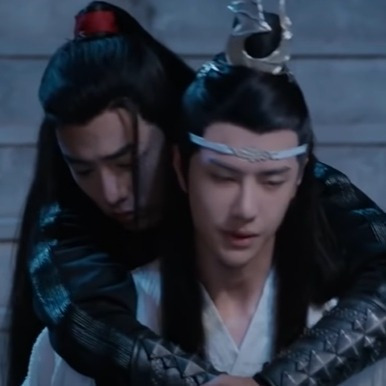
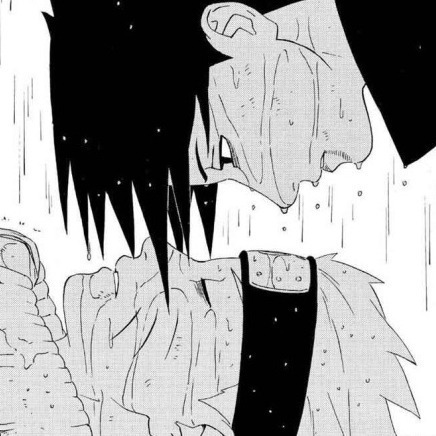
This poll is a celebration of fandom history; we're aware that there are certain issues with many of the listed pairings and sources, but they are a part of that history. Please do not take this as an endorsement, and refrain from harassment.
#sasanaru#wangxian#hannigram#spirk#msr#the x files#star trek#mo dao zu shi#fandom#lets widen this gap
6K notes
·
View notes
Text
Note: This is going to be very rambly and probably disjointed.
I know there is nothing to be gained from looking back on a past you never lived through and wishing you had seen it- but I can't help it. Is it possible to have nostalgia for something you didn't experience? Is that some other phenomenon? And can you even claim a connection to it if you never even experienced a core part of it?
This particular bout of introspection was incited by me starting to read "Where Are Your Boys Tonight? The Oral History of Emo's Mainstream Explosion 1999-2008" by Chris Payne. However, before I dive into this decidedly confusing emotion, some context about me:
I was very sheltered growing up, and I was an introvert, who struggled with social anxiety. I also had to deal with the fact that I was bi, and often resonated more with the toys and interests of my older sister than what was purchased for me. All of these things compounded together to make me ultimately afraid to express... pretty much anything about who I was. I did- and still do- wear very nondescript clothes that didn't make me stand out, and made me feel comfortable by preventing any attention from being drawn to the things I didn't like about myself- how I was underweight, how little muscle I had, among other things. I also never took to any kind of physical activities, despite my parents attempting to get me into sports, due in part to asthma. However, one that always did fascinate me, and that even to this day I want to learn, was Skateboarding. However, as a shy, socially unskilled, non-athletic, closeted child-to-tweenager, I was never willing to approach anyone who skateboarded- for reasons that I hope are obvious, given what I just established- and for a number of reasons, I had no faith in my ability to teach or learn myself. I was also afraid of injuring myself, and of being perceived as disrespectful or breaking rules. I had an interest in alternative music, but was unwilling to explore that interest out of a desire to not draw attention to myself, and a lack of faith in my ability to actually learn about it properly.
In short, though I wasn't able to put this into words at the time, and only understood this recently, I wanted to be emo- alternative, perhaps is the better word, but the nuances of each facet of the community are beyond me (Hopefully for reasons I've made understandable)- but I was too afraid to express that, or seek out others who weren't that could help me along that path. Even now, I'm struggling with that- and I'm about halfway to 21.
With that context, I think it's easier to this feeling- this sort of yearning for a past I never experienced. It's not that I want to live in the past, or that I wish I had BEEN there- all too likely, it wouldn't have been a good experience for me, given how shy and awkward and repressed I was, and the fact that I'm queer, and it was the early 2000's, which was not a great time to be queer, even in the alternative community- but what I DO wish is that I could go back and see it, at least. To go back and, in some way, be a part of that community, that scene, even if just as an observer. Reading through the book, which is full of interviews with the members of bands I've never heard of but would love to know more about, talking about a culture I have never been witness to or part of but have idolized all my life, it incites such an odd feeling. I'm not sure if I've ever had a normal relationship with nostalgia- it's almost exclusively unpleasant, melancholic at best and outright depressing at worst, but I would describe this feeling- whatever it would be called- as quite similar to nostalgia. A sister to it, we'll say. It's a culture that does not, and cannot, exist in the same way it did then- and even among the evolved form of the community that exists today, I feel like an outsider, as I lack a lot of what would be considered the baseline of the community's shared interest (There's probably a better way to phrase that, but I can't think of it right now). No one has gone out of their way to make me feel that way, it's an internal feeling- but one I don't know how to overcome. I want to try and bridge that perceived gap, illusion though it may well be, and gain that knowledge, that community- to do what it takes to feel like I belong, embracing the culture, the music, the fashion- but I feel scared to, for a number of reasons. I feel afraid that I'll do it wrong on my own, and don't want to impose on anyone to ask them to be my mentor. I feel afraid that it will negatively affect how people see me, and make them think I'm someone or something I'm not. I feel afraid that I won't like how I change, that it won't feel right, that I'll regret it- but I know that I've resonated deeply with it all my life, and that there's little chance of me feeling that way. I feel afraid that I won't be accepted by other members of the community, that I'll be rejected by them, because I don't have that experience- that I allowed myself to be perceived as "Normal", or whatever term is fitting, and that because of that, I don't and will never belong.
I know none of these things are true, but they're obstacles I don't know how to overcome. And this feeling only makes that feel worse. I'm afraid to take even small steps, and I'm not even sure I know what steps I would want to take. I'm not sure I even know myself well enough to try and be "The person I want to be"- because I'm not sure I know myself well enough to know what that is. I never gave myself the chance to figure that out, and now, I'm not sure I know how to do that. After all, I don't even know how to form genuine connections with people- the friendships I do have feel like they came into my life by chance, and even though I value them immensely and know that they are real, true friendships, I often feel like we don't have a connection deep enough to be considered that real- I don't know that I know what a connection like that would be. I've never let myself form connections like that.
I don't really know where I'm going with this anymore; I think I lost the plot at some point, but I wanted to put these thoughts into words. I hope this finds someone who resonates with it, and makes them feel better in some way; that it makes them feel less alone, and helps them with these feelings. I don't know what else to say; I guess that's all.
0 notes
Text
As Head Boy, James is given a room. He doesn't really uses it since he would changed nothing for being roommates with his three bests friends. But the room is used.
- In third year, Mary asks for the key so she can have a private conversation with Lily after a fight they had. After the fourth or fifht "private conversation", James just tell them they can snog in public and there won't be any problems. The stop using the room and start snogging in public.
("Why did you tell them this was aceptable, Prongs?" Peter complained.
"I'm smelling homophobia" singsonged Sirius from his own bed without looking up from the book he was reading.
"Stop it, Padfoot. I'm surrounded by you, queers, I'm just lonely and don't need to be reminded by the perfect couple that I don't have anyone to snog with"
"Bold of you to assume Moony and I are not the perfect couple"
James looks at them amused. Peter stops for a second, really thinking who is the best couple.
"Know what, Pads? You guys are really the best couple because I never see you snogging"
"Imma change that" Sirius said as he was jumping from his bed when the door of the dorm opened, showing a very tired Remus Lupin.
"Godric, Pads, stop it!" complained James to the very improper show of affection.
"The key! Give them the key!" shouted Peter covering his eyes)
- So, in fourth year the room is almost exclusively used by Sirius and Remus
James has to remind them to change the sheets (even if Remus swears they haven't shagged)
- Remus also uses it after a full moon so he can sleep all day without being disturbed
- James starts using it when he starts seeing Regulus but before they tell Sirius
- When James and Regulus are a few month in their relationship (in the middle of sixth year), Marlene asks for the key so she can "get to know better that beautiful Slytherin girl, Jamie"
They can't enter the room for a whole week
- Once they have to use it as a detox room for Barty, to which Regulus is incredible grateful
- The only ones who never asked for the key are Evan and Barty. They just wait for Regulus to go out so they can use Evan's bed. Regulus walks on them a few times and is fast to throws them a shoe shouting "In my bed??? Cochinos marranos! I give you five minutes to change the sheets and get dressed!"
"What does cochinos marranos mean?" asked Evan after Regulus stormed out of the room.
"He called us filthy pigs"
"He better not discover what we did with his pillow then")
#rosekiller#jegulus#wolfstar#marylily#dorlene#regulus black#james potter#barty crouch junior#barty crouch jr#evan rosier#dorcas meadowes#sirius black#remus lupin#remus kinnie#petter pettigrew#mary mcdonald#marlene mckinnon#lily evans#marauders headcanon#marauders era#The Infamous Three™#skittle squad
399 notes
·
View notes
Text
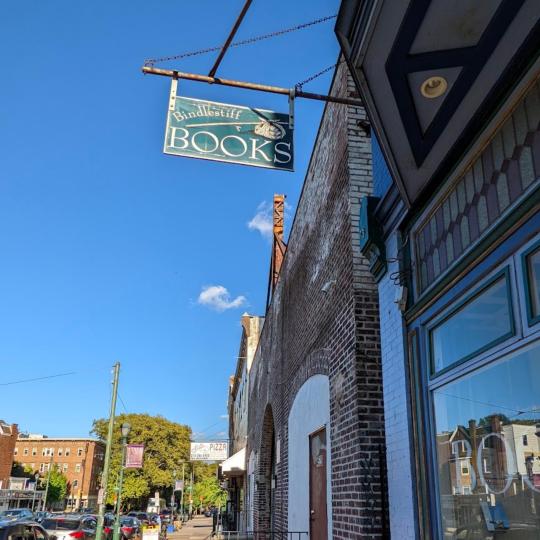
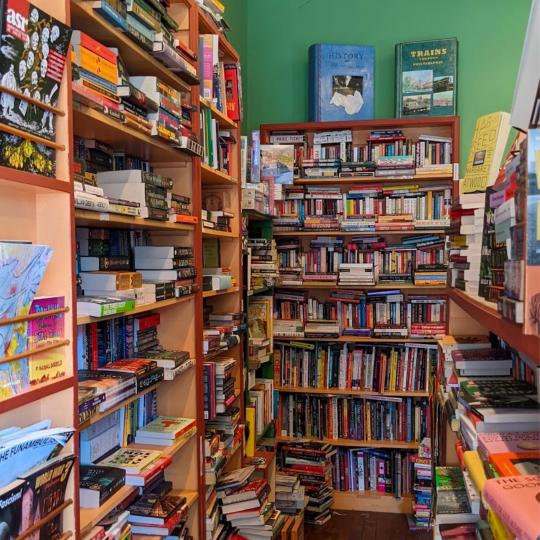
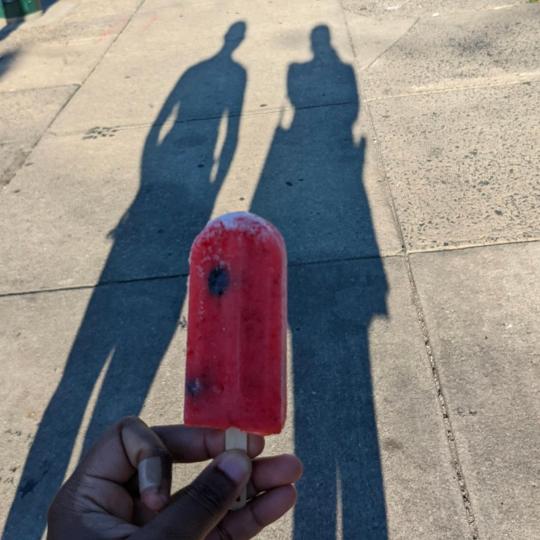

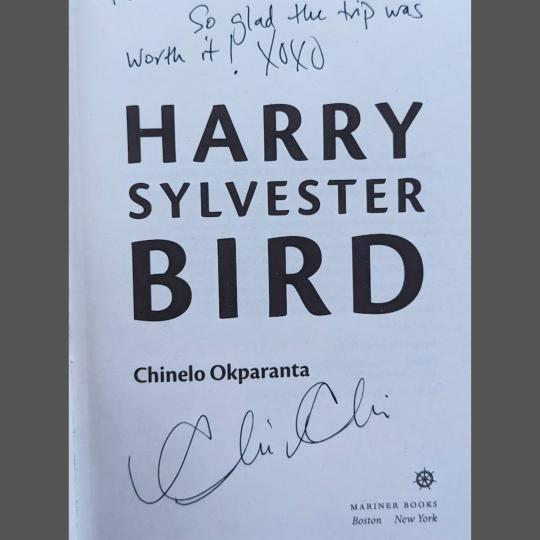
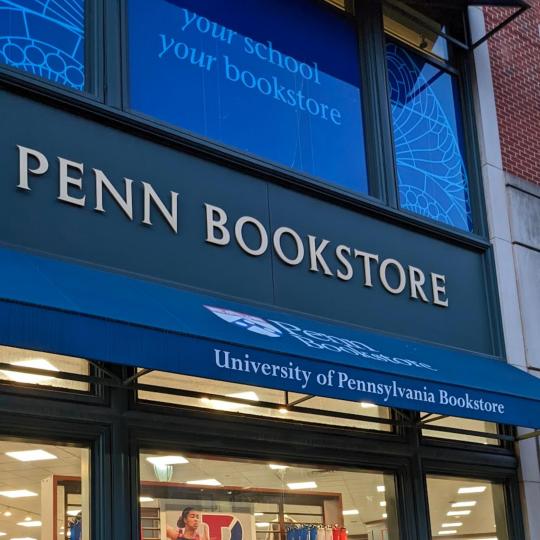
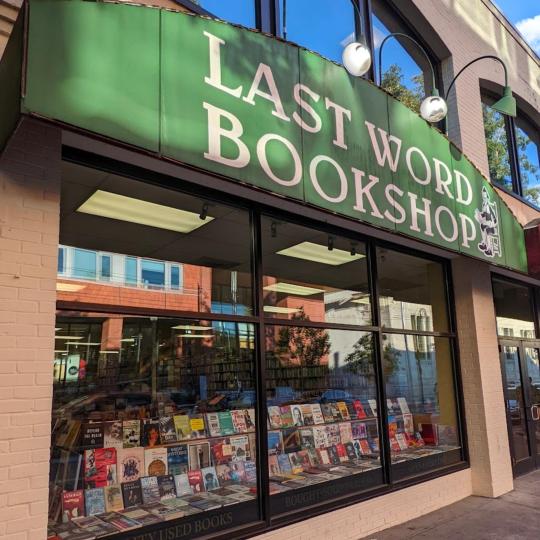
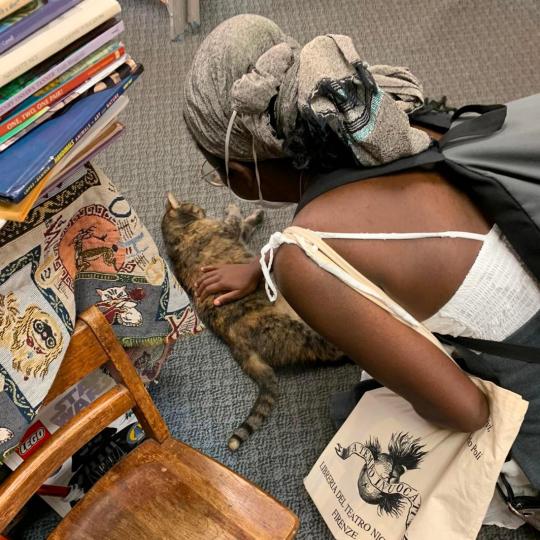
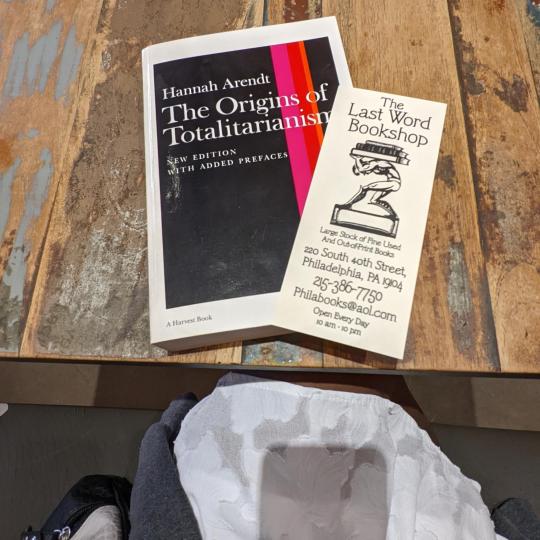
I literally love how my friends all just encourage my insanity and embrace the ebb and flow of my ever-changing obsessions, the ones which all seem to be constantly vying for first dibs on my energy, creativity, spirit, and life-blood. My obsession with a well-told story, one that I can see myself reflected in, won out this week.
One of my college friends knows I LOVE the author Chinelo Okparanta, and have been dying to meet her, so when he told me about a reading/book signing she was having on their campus, I promptly invited myself to visit him. I had to take a bus and four trains to get there, but it was worth it!
Harry Sylvester Bird as a book is so shrewd, insightful, funny, cringey, timely, etc. It very effectively asks who can tell a story that does not belong to them, when, why, and how?
Also, Chinelo Okparanta seems like the absolute sweetest soul ❤️ During the signing, she asked me about myself, and I got to tell her how I came all this way just to see her, and about how much Under the Udala Trees impacted me as a queer African, and also could she please sign my paperback because my mother still has my hardback copy, and I think it helped my mother understand me better, so thank you... I literally cried. I didn't want to overwhelm her, or hold up the line, so after a minute that felt like forever, I ambled away and found an adirondack chair under a tree, still damp from the morning drizzle, and just sat with my feelings for a bit.
On my last day there, my friend and I took the train to Philly, and he followed me across town as I went to like five or six different bookstores, ostensibly looking for a copy of Babel, by RF Kuang (no luck), but really just making my obligatory pilgrimages to the worship houses of the written word.
Also! Though my friend had said he had an air-mattress I could sleep on, when I got there we couldn't find the cap for the opening. We tried pumping it up and taping over the hole, it wasn't very effective. I remember him saying "the world is lucky we didn't choose to be engineers."
So, I slept on the rock hard ground because this is real life and not And-There-Was-Only-One-Bed Fan Fiction lol. Also I'm married, and my friend is a truly decent human being whom I trust. This man not only knocked EVERY time he entered his own dorm room when I was there, but always changed INSIDE his cramped closet, so as not to make me uncomfortable. I told him I could just turn around, but he insisted lol.
I just wanted to mention these anecdotes, because I think that it's important to show that platonic friendships between men and women are always possible... during college, after marriage, and at any stage of life.
Also, I think there's been a lot of talk recently about how many men don't have meaningful platonic friendships... and honestly, my take is: the bar is under the ground. If you're a decent human being, aren't a chauvinist, and don't see women as a foreign species, or place them in the three mutually exclusive categories of "romantic interest", "mother/sister/miscellaneous female relative", or "woman that is not in the first two categories and therefore offers me nothing of value"... then you're a catch!
I remember early in our relationship, when we first started dating, I was trying to explain to my now-husband why I was so drawn to him. We were on a train going somewhere I don't remember, and I went through the list of things we have in common, and reasons he's so lovable, but I almost teared up explaining the fact that I genuinely felt that he saw me as a fellow human being, as a person first and foremost, rather than a woman first. It was like being a woman was just another characteristic about me— yes, part of who I was, but not all of who I was. As someone who grew up in Sub-Saharan Africa, with my gender being the most salient thing about me for all too many people, it was like that first breath of air, right after you break the surface, right after you thought your lungs might burst...
So my advice is, to any friendless or friend-deficient men out there... to any men who are lacking in besties that invite themselves over to sleep on your floor, and tell you they adore you, and listen to you talk about everything from family issues to macroeconomics, and study up on your latest favorite author (my friend's is Toni Cade Bambara, btw) before they next see you, and remember that you don't eat gluten or dairy when they order your food, and just embody all the million little things that make a rich and enriching friendship...
My advice is: learn not only earnest vulnerability, but also how to be someone that can be trusted with that vulnerability in return, because they have earned that trust. Learn that friendships can be, and should be, full of love and enthusiasm and kindness. Learn that a friendship with a woman isn't merely a meandering path to her bed, or a consolation prize. BE the friend you wish you had with your male friends, teach and practice vulnerability, and how to hold someone else's vulnerability in the palm of your hands like the soft, fragile, precious thing that it is.
I didn't mean for this to be so long. I just love all my friends so much, and I feel so grateful to be always-loved-and-most-of-the-time-tolerated by them in return (I can be hella annoying lmao). They have quite honestly and literally saved my life, countless times. I want meaningful friendships for everyone. However, if men are looking at women and queer folks and wondering why we can be so vulnerable with each other... it's because there is often a level of trust, an absence or deep understanding and acknowledgment of power, and a relative lack of violence that lets us be vulnerable with our hearts.
Also, I invite you to consider, and perhaps begin to blame, the patriarchy...
I honestly think that we (women and queer people), and our relationships with each other, have been devalued and dismissed for so long in comparison to The Fraternity of Men, that we are allowed to be vulnerable with in other in a way that men are told they shouldn't be and/or can't be.
The humanity, existence, and experience of cis- and trans women, of gender nonconforming people, and of queer people in general... of anyone whose existence rightly challenges the patriarchy, the gender binary, heteronormativity, etc... it should be enough, IS enough, for cishet men to work with us to dismantle these systems... but if you need some more motivation, you can also do it for the selfish reasons: to have people from all backgrounds and identities who one day trust you enough to sleep on your floor, and who you love enough to change in a closet for.
When you see me as a person first, and treat my friendship as worthy of your time, energy, and vulnerability, with no ulterior motives... when you work to dismantle, or at the very least, honestly acknowledge and critique the violent systems that give you power over me... we may meet someday after then, and we may become good friends.
I look forward to it.
— Sai 🖤
22 notes
·
View notes
Note
What kind of books does every one like in the Leda verse?
(have I mentioned on here that I'm a librarian recently? Holy shit this is my JAM)
Stede is a voracious reader and will plow through nearly anything, but he does love a romanticized adventure story and has soft spot for the classics. His favorite book from childhood is The Hatchet by Gary Paulson and My Side of the Mountain by Jean Craighead George (and Treasure Island naturally). As an adult, he would probably have a conniption if you made him narrow it down to just one favorite.
Eddy does not read for pleasure on her own, but she comes to deeply love Stede reading to her (he keeps trying to give them audiobooks and they don't know how to explain that it is explicitly the act of laying with their head in his lap being read to that is so satisfying). Her favorite so far is Jane Eyre, particularly: "Because," he said, "I sometimes have a queer feeling with regard to you—especially when you are near me, as now: it is as if I had a string somewhere under my left ribs, tightly and inextricably knotted to a similar string situated in the corresponding quarter of your little frame."
Lucius, like Stede, will read anything that isn't nailed down, but his preference runs to poetry and literary fiction. He regularly cries over books though probably only Pete knows that. He adores Umberto Eco, Margaret Atwood, Donna Tart and Michael Chabon. Every year he reads the Booker Prize shortlist and has a lot of opinions about all of them. He also has a very battered secondhand copy of Oscar Wilde's collected works that is his most treasured book.
Pete reads at this point because Lucius just leaves so many books laying around. He doesn't care for a lot of it, but he picks at them occasionally just to see. He enjoys reading the local paper every day and baffles Lucius by still having a physical paper delivered. He also gets many magazines on a variety of topics that sometimes get put to use later in costumes.
Frenchie and John both like romance novels and share them back and forth regularly. Frenchie also likes biographies and memoirs, particularly of musicians. His current favorite is Just Kids by Patti Smith.
Izzy reads only World War I histories and mystery novels, preferably old ones though he's run out of the real classics. Being a PI is nothing like being a book detective, but maybe sometimes when he's alone he might do a dry voice over in his head to pass the time. His favorite book is The Thin Man by Dashiell Hammett. For your consideration: She grinned at me. 'You got types?' 'Only you darling - lanky brunettes with wicked jaws.'
Jim goes through phases of reading. They'll stop for long periods and then pick it back up, go through a pile then stop again. They love thrillers, the more ridiculous the better. They genuinely enjoy Dan Brown books and have no issue arguing someone down who tries to point out their flaws.
Oluwande loves Amy Tan. This one I can't explain, I just know it in my heart. He has read every one of her books and doesn't care who's seen him cry over them. He also enjoys solarpunk and has recently gotten very into Becky Chambers.
Roach loves all speculative fiction, but prefers stuff written more recently over the classics. He's a big library user and doesn't actually own many books because he prefers to live light. His current favorite is The Broken Earth Trilogy by N.K. Jemisin.
Buttons reads philosophy almost exclusively. He doesn't really agree with any of it, but he has a soft spot for Lebieniz because the concept of monads resonates with him. (Monads were a kind of early idea of the atom and also the soul, it's a whole thing. I have to use my philosophy degree for something sometimes.)
Alma loves poetry and Lucius has shared a lot of favorites with her. Amanda Gorman is her idol and her current all time favorite, particularly: & what we share is the bark, the bones. Paleontologists, from one fossilized femur, Can dream up a species, Make-believe a body Where there was none. Our remnants are revelation, Our requiem as raptus.
22 notes
·
View notes
Note
ok so this might come off as a bit rambly so please bear with me lol
i've noticed that the acotar fandom has this incessant need to be right when it comes to canon and it really sucks out the funness of fandom. shipping is supposed to be fun but when it comes to this fandom, it's almost like a competition to see who will be more right when the books come out. engaging with theories/predictions about characters and the plot is supposed to be exciting but when it comes to this fandom, some of the theories/predictions are problematic at worst and nonsensical at best. like how can you say with your full chest that you're so confident about where the series is heading in the future because of this or that theory when you're stuck in the past and refuse to see what all of the text is telling you in the present. it doesn't make sense. the selective reading is so strong that it has me looking sideways sometimes lol
i guess my question is why do you think the fandom is so divided when it comes to ships right now? i've seen people say this wasn't the case for feysand and nessian, so what's the difference here?
Oh boy Brielle, I have some thoughts on this. It's complex.
To be clear, I am not saying that this applies to literally every single person who ships a certain way. This is a commentary on the fandom as a whole, and there are always exceptions.
This got really, really long, so I'm putting it under the cut.
I think that one of the main draws of this series, and of sjm's writing in general, is her ships. I think that people get very, very attached to their ships.
I also think that sjm does NOT fully think through some of the choices that she makes when writing. See: the way that she takes from all these different cultures and mashes them together, which could be seen as disrespectful of their origin. She has retconned things, like Mor being queer and Lucien being Helion's son. I think that she thoroughly thinks about some of the aspects of her books, like Rhys's reaction to sleeping with Feyre for the first time, but then really half-asses other aspects of her books, like Mor coming out.
Then, we have your good old misogyny and homophobia - people in the fandom don't like Mor because she hurt the poor bat boy's feelings when she didn't sleep with him, and they don't have a mating bond, but she's never really told Azriel "no", and so every single moment of pain that Azriel has felt in 500 years is Morrigan's fault. And Mor's experience as a closeted queer woman who feels unsafe around the people she should trust the most is completely disregarded by the fandom.
Finally, I think that a combination of these factors has created the monster we know as e*riel, and that the fandom is perpetuating its own mythology.
What all of this comes down to, and the real reason I think that the fandom is behaving this way right now, is that e*riel is dead. It's never happened, it's not going to happen, but because we don't have the clear closure we got with moriel (where people would be accused of homophobia for continuing to ship it), people are still trying to figure out any possible way for e*riel to become canon, though every single sign points to it being a non-issue.
This weird thing where people have to be "right" all the time, and the way that "right" = "canon" is a relatively new development. It's as if everyone in this fandom forgot that they are in fact in a fandom, which inherently diverges from canon.
However, I think that the need to cling to canon is because the alternative would be to admit defeat and say "well, even if it doesn't happen I will still ship e*riel, it's fine, I will live with that." But they don't want to do that. In response, they look at canon so hard that they are reading the white space between the letters to create their theories, which as you noted as largely nonsensical and often fail to take into account who the characters are as individuals, how they are connected to other characters, and why it would or wouldn't be appropriate for them to be involved in various plots.
People could say, as eluciens having been saying since day one, "I really ship this thing but I can see that it might not become canon". But they don't say that. They literally refuse to see any other possibility than e*riel becoming canon.
You pointed out that people are stuck in the past - absolutely. The number of reimaginings I have seen of scenes where either Azriel or Elain has literally zero to do with the scene, but people try to shove one or both of them in there. And this from books ago. People are stuck on the Truthteller scene, and refuse to acknowledge that neither of them have acted on their feelings, whatever those might be, for years. And they ignore the fact that once Elain and Az do act, it goes horribly wrong.
Here are the facts as of right now:
ACOSF is the most recent book. In that book, sans extra chapter, those two had no interaction other than looking at one another.
If we include his POV, then he said it was wrong, we got confirmation that nothing has ever happened between them, she returned his necklace. Elain was aroused, but that does not mean she was ready to even have sex. "Yes" to a kiss is not "yes" to every single sexual act Az can think of. They parted on awkward, bad terms after a scene in which it seemed like they were about to start something. Yikes. Unlike Wings and Embers, they did not end that chapter still thinking of one another. After they part ways, the omniscient narrator does not mention Elain, or Az thinking about Elain, again.
His POV occurs months before the end of the book. They do not interact after that.
Elain has a mate she has not rejected, nor accepted.
So anyway, your question was why are people like this. lol. I think the fandom created a monster, and that monster is clinging to life. It can't accept the idea of morphing into a non-canon ship, though it never was canon in the first place. It had just convinced itself that it was.
There are other aspects to this, that have to do with gwynriel and elucien.
Gwynriel is a new ship, it's almost guaranteed to happen, people are super excited to ship it and give Gwyn all their love. I'm sure they would rather create content for that ship than argue about whether or not it's going to be canon, but they are in constant defense mode. Some people honestly didn't like e*riel before because they don't like Elain, or because they don't like Azriel, and those are valid reasons for not liking it. Why people ship gwynriel doesn't matter. The tone of the discussion is, unfortunately, being shaped elsewhere, which I will mention below.
Elucien is an old ship, older than e*riel. I can speak from this perspective - personally, I have been holding my tongue for 4.5 years. I have been letting people live, and just talking about the things I like. Then when acosf came out, it was like I could finally say all the things I had been thinking about Azriel, because I now had proof that the things I thought about his character (and because of that, about e*riel) now had solid canon foundation. This is 4.5 years of me holding in a lot of shit and finally being able to say it. Sometimes yes, I might take joy in having been right.
I think that a few people are clinging to canon, and that sets the tone for the discourse in the fandom. Someone says "according to page whatever, blah blah blah" and people feel the need to respond, and then it turns into and "I'm right" contest instead of... a fandom... A lot of us like debating. To me, it's fun. But when Person A starts a conversation that's about canon and it actually ignores canon, it's hard to let that conversation go by and just keep creating whatever we want to create. Instead, we respond, and so the tone of the conversation is shaped by what Person A decided to say.
I also think that there is a lack of distinction between theories (what will happen in the future) and meta (analysis of what we have now).
There is also a lack of "I" statements. Opinions are being stated as fact.
idk if there is a way to make it better, other than to just go back to ignoring one another. This whole situation makes me want to throw out every single canon ship I like and create exclusively non-canon content, just for spite. Except I really like doing meta, and so I don't want to. I guess for my point, I'll just keep doing meta, keep creating different content, and keep reminding people that they aren't here to continue perpetuating canon, but to play with it.
77 notes
·
View notes
Note
do you think every disabled character in wc is handled poorly? i understand theres def some cases of ableism but at the same time when i hear ppl say that its usually bc the disabled cat wasnt able to become a warrior due to their disability. and i feel like ppl forget, that not everyone irl CAN do what they want after they become disabled. ex. someone wants to be an athlete, but their legs have to be amputated. a cat like briarlight esp i feel is p realistic and could be a source of comfort
Hello there, thank you for writing in. I’m going to reply to this question with a series of questions I think are a bit more useful, given what you’re trying to ask me. I hope that’ll clarify what is a deeply complex, multilayered issue.
Do I think Erin Hunter handles anything in the series “well”? Not really. I don’t have a high opinion of the work of the collective and, broadly speaking, I think every right note they play, metaphorically speaking, is an instance of chance rather than effort, skill, or intention. Stopped clocks are right twice a day, mediocre writers will sometimes do something cool by accident, similar principle. That’s not to say Erin Hunter hasn’t ever done anything on purpose--just that overall the underlying drive of the series isn’t so much quality as it is quantity, and speed of production, and it shows.
Do I think Erin Hunter puts any significant research into how they portray disability? No. I do not think it is a priority for this series. They’re not trying to make a meaningful work of literature, or capture a realistic experience of disability, or tell especially impactful or thoughtful stories, or even make a particularly good or coherent fantasy world. Warriors is a specifically commercial product that was commissioned by HarperCollins to appeal to a particular demographic of drama-loving, cat-loving kids. It’s not really trying to do anything but sell books, because it’s a business, so the text in many ways reflects that. They’re not going for disability representation, in my opinion. They’re including disability in many cases as a plot-point or an obstacle.
Do I think this means that people can’t connect to these characters and narratives in meaningful ways? No. Often I say that a work is completed only when it is read. Before that point, it doesn’t have a meaning: a reader finishes the work through the act of reading, and interpretation, and filling in the spaces and resonance of the story with their own values and experiences. When people talk about subjectivity, this is what they are talking about. What this means in the context of disabled characters in Warriors is that these characters and their stories can be multiple, conflicting, even mutually exclusive things at the same time, to different people, for different reasons.
Do I think characters have to be “good” to be significant to someone? No. I think genuinely “bad” (i.e., not researched or poorly researched, cliche, thoughtlessly written, problematic, etc. etc.) characters can be deeply meaningful, and often are. Ditto above: for many people, and especially marginalised or stigmatised people, reading is almost always an act of translation, wherein the person is reading against the creative work of the dominant culture in a way that the author likely didn’t intend or didn’t even imagine. There’s a long documented history of this in queer culture, but it’s true for just about everyone who is rarely (or unfairly) represented in media. Disabled people often have to read deeply imperfect works of fiction featuring disability and reinterpret them in the process--whether to relate to a kind of disability they don’t experience themselves but which is the closest they’re offered to something familiar, or to turn positive and meaningful what is intended as narrative punishment, or simply to create what’s commonly called headcanon about “non-disabled” characters who echo their personal experiences.
Do I think everyone has to agree? Extremely no. As I said before, people will actually always disagree, because all people have different needs and different experiences. What can be interpreted as empowering to one person might be very othering and painful for another. There is no “right” answer, because, again, that is how subjectivity works. This is especially true because marginalised communities are often many different kinds of people with different lives and needs brought together over a trait or traits they share due to the need for solidarity as protection and power--but only in a broad sense. It’s why there is often intracommunity fighting over representation: there isn’t enough, there’s only scraps, and so each person’s personal interpretation can feel threatening to people whose needs are different. You can see examples of this especially when it comes to arguments over character sexuality: a queer female character might be interpreted as bisexual by bisexual people who relate to her and want her to be, while being interpreted as lesbian by lesbians who also relate to her and want her to be like them. Who is correct? Often these different interpretations based on different needs are presented as if one interpretation is theft from the other, when in fact the situation is indicative of the huge dearth of options for queer people. It becomes increasingly more intense when it comes to “canon” representations, because of the long history of having to read against the grain I mentioned above: there’s novelty and, for some people, validation in “canon” certainty. And again, all of this is also true for disabled people and other stigmatised groups.
Do I think this is a problem? Not exactly. It is what it is. It is the expected effect of the circumstances. Enforced scarcity creates both the need for community organising and solidarity and the oppressive pressure to prioritise one’s self first and leave everyone else in the dust (or else it might happen to you). The system will always pit suppressed people against each other constantly, because it actively benefits from intracommunity fighting. Who needs enemies when you have friends like these, and so on. A solution is absolutely for everyone in community to hold space for these different needs and values, and to uplift and support despite these differences, but it’s not anyone’s fault for feeling threatened or upset when you don’t have much and feel like the thing that you do have is being taken away. It’s a normal, if not really helpful, human response. But until people learn and internalised that the media is multifaceted and able to be many things at once, without any of those things being untrue or impacting your truth of the text, then there will be fighting.
Do I think my opinion on disability on Warriors is all that important? No, not really. I can relate to some characters in some moment through that translation, but my opinion on, say, Jayfeather is nowhere near as worthy of consideration than that of someone who is blind. I don’t have that experience and it’s not something I can bring meaningful thinking about, really. That’s true for all these characters. If you want to learn about disability, prioritise reading work about disabled rights and activism that is done by disabled people, and literary criticism from disabled people. And as I mentioned above, remember that community isn’t a monolith: it’s a survival tactic, that brings together many different people with disparate experiences of the world. So research widely.
Finally--do I think there’s only one kind of disabled narrative worth telling? No. For some people, a disabled character achieving a specific, ability-focused dream is a good story. For other people, a story that acknowledges and deals with the realities, and limitations, of disability is a good story. The same person might want both of those stories at different times, depending on their mood. That’s okay. Sometimes there’s power and delight in a fantasy of overcoming seemingly impossible obstacles and defying all expectations. Sometimes there’s value and catharsis in a narrative that delves into the challenges and grief and oppression experienced because of disability. There’s no one truth.
To round all this off, I’m going to give my favourite example of this, which is Cinderella. I think it’s a great and useful tool, since for many it’s familiar and it’s very simple. Not much happens. In the story, she is bullied and tormented, until a fairy godmother gifts her over several nights with the opportunity to go to a royal ball, where she dances with a prince. The prince eventually is able to find Cinderella, due to a shoe left behind, and they are married. In some versions, the family that mistreated her are killed. In others, they’re forgiven.
Some people hate the story of Cinderella, because she is seen as passive. She tolerates the bullying and never fights back. She does every chore she’s told. She is given an opportunity by a fairy godmother, and she doesn’t help herself go to the ball. She runs from the prince and he does the work to find her again. Eventually, she’s married and the prince, presumably, keeps her in happiness and comfort for the rest of her life.
For some, this story is infuriating, because Cinderella doesn’t “save herself”: she is largely saved by external forces. She is seen as a quintessential damsel-in-distress, and especially for people who have been bullied, infantalised, or made to feel less capable or weak, that can be a real point of personal pain and discomfort.
However, for some others, Cinderella is a figure of strength, because she is able to endure such hostile environments and terrible people and never gives up her gentle nature or her hope. She never becomes cruel, or bitter. She is brave in daring to go outside her tiny, trapped world, and she is brave to let the prince find her. She doesn’t have to fight or struggle to earn her reward of happiness and prove her worth, because she was always deserving of love and kindness. The prince recognises at once, narratively speaking, her goodness and virtue, and stops at nothing to deliver her a better life.
Depending on the version, the wicked family disfigure themselves for their own greed--or are punished, which for some is a revenge fantasy; or Cinderella forgives them and once again shows her tenacious kindness, which for others is a different revenge fantasy.
The point? Cinderella is the same character in the same story, but these are almost unrecognisable readings when you put them side-by-side. Which one is right? Which one is better? In my opinion, those are the wrong questions. I hope this (long, sorry) reply is a set of more useful ones.
45 notes
·
View notes
Text
Contributor Spotlight: Mimi
Now that Issue #1 is live, we at OFIC Mag are excited to shine a light on some of the amazing contributors from our inaugural issue. We hope you all love them as much as we do!
Today’s spotlight is on Mimi | @pcandaa, who wrote “i want to get away (you make me want to stay)” for Issue #1.
Tell us a bit about yourself!
Wow. Head empty no thoughts. Why is this question so hard?
By day I work in gender justice (the field that kid-me said I would never enter), and by night I write sapphic and other kinds of queer fiction, mostly romances, but I've been trying to craft a thriller lately, and it's been interesting. Aside from writing, I like playing boardgames with my friends weekly, trying to convince my knees that I can run cross country again like I used to, and listening to history podcasts. I also do art when I have more than two seconds to spare, and I'm still gunning towards being exhibited someday.
How did you find fandom?
Through Harry Potter, in 2006. I used to lurk on a website called harrypotterfanfiction.com (which afaik is being imported into AO3 now). Then I discovered fanfic.net, and then later AO3.
I started posting fanfic on AO3 for Jane the Virgin in 2016, and wrote fics for All For One (the webseries—go check it out it's cool!) and some other small, niche fandoms.
What fandom are you in now and what brought you here?
I currently almost exclusively read Supercorp fanfic and do very little else, and I hate to say it, but racism brought me here—I adore Avatar: The Last Airbender and Legend of Korra, but fandom is never really a safe space for fans of colour, and the casual racism implicit in many LoK fics threw me off and stopped me from being able to read most fanfic for it.
I wanted to continue reading decent femslash, but without having to deal with the racism, hence my pivot to a fandom with two white women placed front and centre. I don't watch Supergirl and never intend to, but I've found several amazing AUs that I've enjoyed deeply over the years, though I'll always wish we had the same energy for non-white characters.
My experience with ATLA and LoK threw me off participating too deeply in fandom in general, especially for shows with women of colour, so I lurk and enjoy fanart and not much else.
What’s your favorite book of all time and what do you love about it?
I don't think I have a singular favourite book of all time, but a few highlights over the past couple of years would be:
The Sea and Stars Trilogy by SD Simper: Absolutely sizzling chemistry between the leads of the likes I have rarely read before. Plot is also gripping AF. SD Simper can really tell a story.
Gideon the Ninth by Tasmyn Muir: Gideon is possibly my favourite protagonist ever, she's hilarious and mouthy and butch and unabashedly loves women—I want more characters like her!
The Red Country by jilbrais (Ao3): A stunning prequel to Alice in Wonderland with a gutwrenching story between the Queen of Hearts and the Red Queen—I'd highly recommend it, the prose is beautiful and the story is incredible.
Honey Girl by Morgan Rogers: That book was written for me, about me, and that is all I have to say about that. More books about black girls that include whimsy and dreams and the agonising reality of unrealised dreams please! I would absolutely read anything else Morgan Rogers writes.
I also really enjoy Jenny Frame's romance novels, she writes in a way that is so earnest and honest, and she handles narratives of grief and loss extremely well. She's also really good and amping up chemistry between her leads, and of course, each of her books has a butch lead in it, which I absolutely adore.
What projects are you working on right now?
I had a whole thing planned to write more fiction this year and I've since been swamped with research projects and prepping a chapter of my thesis for publication. Some Real World Stuff right there bleargh. Ideally I'd be working on the following original fiction projects:
See Me In Hindsight: A sapphic Ocean's 11 retelling. Featuring cheek and chaos and some family drama thrown in for fun.
Tightrope: A woman waits for her spouse to return, only to find that they've brought their dead twin's mistress to the house. The two women tiptoe around each other, each believing the other to be the enemy, but the true enemy in the house is not who they think.
Untitled Spite Novel: In 2011, a 16-year old is overwhelmed by academic pressure and confides in her teacher. As they begin to grow closer as mentor and mentee, and eventually into something less and less appropriate, the girl is plagued by visions of violence, and the unyielding spectre of a woman with no face.
Untitled Supernatural Romance: Mehreen Kazi is one of the most powerful vampires in Osower and the High Princess of the Osower Council, but she's broken one of the cardinal tenets of the city: no sex with the humans you feed on. But she can't let the girl go, even though she doesn't know who she is and hasn't seen her face, because the dampners at the feeding house prevent her from doing so. Aisha Isa is a mage who's been searching for the secret to immortality, and finds a temp job PA-ing for Mehreen Kazi, who might have the answer she's been looking for. In the meantime, she's part-timing as a feeder for a high-profile mystery client who's broken one of the city's cardinal rules with her, but Aisha's already too hooked on her to care. As the two of them bicker and clash against each other during the day, unknowingly loving each other at night, Mehreen's sister Mira lurks in the background, waiting for just the right moment to see her fall.
What are your aspirations as a writer, big picture or small?
To experiment with different genres and improve my prose style. I'd love to get published one day, indie or big house doesn't matter, and as a writer based outside the Global North, I know my odds are absolutely stacked against me! But I also want to continue to find joy in creating stories and learning to craft them better and better (and I really, really want Untitled Spite Novel out in the world someday).
If you could give one piece of advice to beginning writers, what would you tell them?
Write what you like! Write badly! I made this mistake as a young writer because I was too much of a perfectionist to write as often as I needed to. It wasn't till I was in my early 20s that I actually learned to tell a good story because I was writing pretty much anything that came to mind, whether it was good or not, whether I completed it or not.
The more you write, the more you'll understand your own process, the more you'll learn about what to do and what not to do, and the kind of stories that matter to you. Don't think that your stories don't matter just because you don't see other people telling them. They will always matter. Always remember that.
THANK YOU FOR BEING A PART OF THE OFIC FAMILY, MIMI! WE’RE SO THRILLED TO SHARE YOUR WORK WITH THE WORLD.
7 notes
·
View notes
Text
Loveless by Alice Oseman
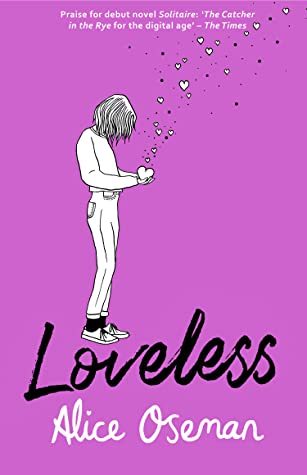
Read time: 5 Days Rating: 4/5
The quote: You know why people pair up into couples? Because being a human is fucking terrifying. But it's a hell of a lot easier if you're not doing it alone. — Ellis
In the interest of full disclose this is an almost automatic 5 star book for me. Any book that features an aro/ace protagonist and treats them with respect and dignity will get 5 five stars, any writing plot or character other flaws be damned. The world needs more aro/ace representation where we aren't the best friend or something to be fixed. But even without my usual aro/ace crusading, this likely would have been a 5. The character are individual, realistic and oh so human, the plot is centred on identity and confusion but is written in a manner that it is readable. And it is oh so relatable for an ace (aro? demi? grey? my romantic orientation is up in the air) who found out well after school what they were. The anger, confusion, sense of overwhelm, and the bizarre sense of mourning due to the loss of what was impressed on you as the normal. One of the best phrases in the book may be "Says who? The Hetronormative rulebook? Fuck that Georgia Fuck that." and you know what amen to that Rooney. The ending is satisfying but still open as is only right for something written for this demographic. This isn't the end of their story it is only the start.
It is worth saying that for those of us who are ace and comfortable with their identity are aware very early on what is going on with Georgia. Georgia is an anxious, touch averse Ace who is trying to force herself to be "normal". With an extended family of almost perfect hetronormative ideal relationships, met early married had kids that have been subconsciously impressed on her as the future and expected of her. Combined with her love of fanfiction it had to be her to the idea that there is the perfect person for everyone. As stated in the intro to this review Georgia is very realistic in her reactions to her newly discovered identity. Confusion, anger, mourning, insecurity. I personally felt all of these and I know others in the community did as well to varying degrees. Georgia does have a conversation with the wonderful Ellis, an ace in her 30s who had to discover her identity and learn her way on her own. Moments leading up that earn this a trigger warning for something that may or may not be alluding to conversion therapy, either way, it is slightly distressing. Ellis is a beautiful woman and a great inclusion. She is a successful woman, making her own way and living her life regardless of what others think.
A moment on the character who for me is the absolute stand out. Sunil is Georgia's College parent, they end up being a something of fairy godace for Georgia. They would hate that term, but it's so fitting for me. Sunil is a homoromantic nonbinary ace with the preferred pronouns they/him (Georgia/ Oseman use him never they), he is the one who introduces the term asexual to Georgia and tells her the potential of it. I really like him, he makes me smile. No one in an Alice Oseman book is two dimensional in their identity (racial, romantic or sexual), Sunil is no exception. He is handled well with the respect of an only slightly older figure, one who is still not entirely set on their feet. And while Georgia is cis white as well as being an enby Sunil is of Indian descent.
The other supporting characters are Rooney, Pip and Jason. Rooney is Georgia's Shakespeare obsessed roommate. They meet on the first day of university and are total opposites. I like their relationship. It's non-traditional but love in a way I want to see more of. Georgia is loyal despite all of Rooney's actions. Pip and Jason are Georgia's best friends. Pip is chaos, Georgia is silent and Jason is clam. They are something of an odd combination but it works well. Jason and his love of Scooby-Doo is both funny and cute. They are all individual and that there is some conflict between them is a good thing.
This is relatable for aces in a similar way to I Was Born For This was relatable for fandom. I would say that if you enjoyed I Was Born For This for its fandom aspects you will enjoy this, even more, fandom specifically fanfic is part of Georgia and her romantic education such as it is. Georgia (, Sunil and Ellis) face misunderstandings about their sexuality. Those phrase aces hear and hate. Sunil's is particularly important they face bigotry from other members of the LBGTQ community, where it is called a made-up sexuality. Georgia gets the 'you'll find the right person', 'have you tried...', 'what about when you are older'. We've all heard them and I could hear the tone. Some of the statements are apologised for others are not, the ones that are are important and say a lot about the importance and development of the character.
A random dump because concise reviews are not possible for Alice Oseman books.
Tommy ending up in the fire is funnier than it should be. I see all kinds of unwarranted metaphors.
Fried Egg is the cutest nickname that would make no sense to anyone but the participating people involved.
Kinsey Scale Test is something hadn't heard of but yeah that is a result a questioning person doesn't want to see.
QUILTBAG is an acronym I had never heard in the LGBTQ community. It's not new, I found it in a 2012 article, where I found this definition it is a good article. "It stands for QU is for queer and questioning, I for intersex, L for Lesbian, T for transgender and transsexual and Two-Spirit, B for bisexual, A for asexual and ally, and G for gay and genderqueer. Even with all those letters, we’ve missed some of the possibilities (such as pansexual and fluid, both of which are identities I’ve heard people claim), but QUILTBAG still offers a rainbow of different ways to identify. It’s also a lot easier to say than LGBTQIA (which is what I started using after I realized how exclusive LGBT and queer were)."
Am I the only one who doesn't know what the Bailey Ball is? They aren't an Australian thing. Well, that and I studied uni by distance.
Rooney and Ellis make some brilliant points about friendship and its importance to aces. The way it is made lesser than romantic relationships in general.
Apparently all the Oseman books are set in a common universe, the easiest evidence of this in Loveless is in the reference to Universe City from Radio Silence.
Roderick the plant as a metaphor was smart. I quite liked it.
This is a really quotable book there are fantastic quotes about love, friendship and maturity.
As an aside. The protagonist brings up her love of fanfic early in the book. There is there are precious little aspec fanfics out there. Mostly one would suspect because sex makes the tv industry go-round (see Shadowhunter and Riverdale for their treatment of originally aroace characters). As Clotpolesonly wrote in reply to me "aspec AUs are practically unicorns, they're so rare in fandom". One fandom that does have fanfics for them is Teen Wolf. Derek Hale can easily be read as an aspec (usually closer to the demi or grey part of the spectrum). So even if you don't know the show have a fic rec Magic and Drag Queens and Lizards, Oh My by clotpolesonly. Also That's When I Knew by Stennerd, this is for the 911 fandom pairing is Buddie, demisexual. There are I know more but not nearly as many as there are for some others.
#alice oseman#osemanverse#loveless#lgbtq#book review#asexuality#aromantic#sorry people this review is almost obsencely long#ktreviews#read 2020#jazzyjess#clotpolesonly#jess and jessica i'm tagging you because i reference your fics
76 notes
·
View notes
Text
Here and Queer: The Witcher
Hi, I’m Aaliyah, and this is Here and Queer, Canon Queerness in The Witcher books.
I already started this series by talking about Ciri here. Her relationship required a fair amount of analysis because it began nonconsensually but continued for months after the fact and spanned three books so there was quite a bit to cover.
However, while she is the main character there are other characters who are also queer in the books including Triss Merigold, Philippa Eilhart and Geralt himself!
Let’s jump right in by talking about our first queer character: Triss.
She is explicitly confirmed as Queer in Blood of Elves during this internal monologue:
As far as her erotic life was concerned, Triss Merigold had the right to consider herself a typical enchantress. It had began with the sour taste of forbidden fruit, made all the more exciting by the strict rules of the academy and the prohibitions of the mistress under whom she practised. Then came her independence, freedom and a crazy promiscuity which ended, as it usually does, in bitterness, disillusionment and resignation.
Then followed a long period of loneliness and the discovery that if she wanted to release her tension and stress then someone who wanted to consider himself her lord and master – as soon as he had turned on his back and wiped the sweat from his brow – was entirely superfluous.
There were far less troublesome ways of calming her nerves – ones with the additional advantages of not staining her towels with blood, not passing wind under the quilt and not demanding breakfast. That was followed by a short-lived and entertaining fascination with the same sex, which ended in the conclusion that soiling towels, passing wind and greediness were by no means exclusively male attributes.
Finally, like all but a few magicians, Triss moved to affairs with other wizards, which proved sporadic and frustrating in their cold, technical and almost ritual course.
Sounds here like Triss enjoyed her relationships with women but the forced heteronormativity of society caught up with her. This actually hits quite a bit for me as Triss states that her relationships with men seemed lacking after she had relationships with women.
Of course, there is also this scene in The Tower of Swallows:
The brilliant beam of light, broken by the diamond, flashed on the surface of the mirror. Yennefer stretched out both hands and began chanting a spell. The blindingly bright light reflected and concentrated into a fog. Soon, a picture began to emerge. The image of a room whose walls were covered with colorful tapestries.
A movement at the window. And a troubled voice. “Who? Who's there?”
“I'm here, Triss.”
“Yennefer! That you? Gods! How did… Where are you?”
“It does not matter where I am. Do not block the image, because the picture varies. And take away that candle, it’s blinding.”
“Right. Of course.”
Although it was late at night, Triss Merigold was wearing neither lingerie nor her work clothes. She wore a dress for going out. As usual, high-collared and closed.
“Can we talk freely?”
“Of course.”
“You're alone?”
“Yes.”
“You're lying.”
“Yennefer…”
“You are deceiving me, brat. I know your face; I know you too well. It’s the same look you had when you started sleeping with Geralt behind my back. Back then, you put on the same sheepish, innocent mask that I see on your face now. And it means the same thing now that it meant back then!”
Triss was red. Philippa Eilhart appeared in the window next to her, dressed in a dark blue men’s jerkin. “Bravo,” she said. “As usual, quick. As usual, perceptive. As usual, hard to grasp and understand. I am glad to see you in health, Yennefer. I am happy that your crazy teleportation from Montecalvo did not end in tragedy.”
Gonna be very honest here, as someone who has had to hide their girlfriend when a friend or parents walks into your room, that is exactly how I read this scene. Yennefer saying Triss has the look on her face of someone who just got laid? Philippa coming out of hiding and calling Yennefer perceptive? The fact that when Yennefer first called Triss didn’t let her see what was going on and then appeared fully dressed after blocking the image? I don’t know about anyone else, but I read this as Yennefer catching Triss and Philippa together romantically.
However, even if you don’t buy this scene as explicitly showing a relationship between the two of them, Triss is still queer as well as Philippa.
From Time of Contempt:
“So it is!’ said Marti Södergren, leaning over and wrinkling her nose, after which she picked up a goblet and looked at the traces of crimson lipstick on it. ‘Ah, Philippa Eilhart. I should have known. Who else would have dared to do something so brazen? That revolting snake. Did you know she spies for Vizimir of Redania?’
‘And is a nymphomaniac?’ risked the Witcher. Marti and Keira snorted in unison.
‘Is that what you were counting on, fawning over her and flirting with her?’ asked the seductress. ‘If so, you ought to know someone’s played a mean trick on you. Philippa lost her taste for men some time ago.”
Another Philippa scene from The Tower of Swallows:
Philippa Eilhart was in a short nightgown with thin straps, and her face and neck had traces of lipstick. Assire, with a great effort of will, contained an expression of displeasure. Never, ever, will I understand this. And I do not want to understand.
“Can we speak freely?”
Philippa’s hand made a sweeping gesture. And she surrounded herself with a magic sphere of discretion.”
Answering a telecomm with lipstick all over ur neck is such a queer power move and honestly Philippa might be manipulative but damn the energy she exudes.
As well as Philippa and Triss, there is the infamous bath scene with Geralt and Borch from Sword of Destiny:
“Let’s make merry!’ Three Jackdaws leant across the table and slapped Téa on the backside. ‘Let’s make merry, Witcher. Hey, landlord! Over here!’
The innkeeper scuttled briskly over, wiping his hands on his apron.
‘Could you lay your hands on a tub? The kind you launder clothes in, sturdy and large?’
‘How large, sir?’
‘For four people.’
‘For… four…’ the innkeeper opened his mouth.
‘For four,’ Three Jackdaws confirmed, drawing a full purse from his pocket. ‘I could.’ The innkeeper licked his lips.
‘Splendid,’ Borch laughed. ‘Have it carried upstairs to my room and filled with hot water. With all speed, comrade. And have beer brought there too. Three pitchers.’
The Zerrikanians giggled and winked at the same time.
‘Which one do you prefer?’ Three Jackdaws asked. ‘Eh? Geralt?’
The Witcher scratched the back of his head.
‘I know it’s difficult to choose,’ said Three Jackdaws, understandingly. ‘I occasionally have difficulty myself. Never mind, we’ll give it some thought in the tub. Hey, girls. Help me up the stairs!”
Now, there’s a lot of people who read this scene and say: hey now, Geralt didn’t actually sleep with Borch. They just slept with two women. Together. In a bath. Now, I don’t know about any of you, but when four people are naked in a bath together all having sex it’s not a situation where you can say no-homo bro and call it a day.
Also, you know, there is this line later on in Sword of Destiny:
“Véa, already mounted beside Téa, waved.
‘Véa,’ the Witcher said, ‘you were right.’
‘Hm?’
‘He is the most beautiful.”
Of course, this is in reference to Borch’s dragon form but considering the last person to call Borch beautiful was Véa who slept with him...well. Geralt is at the very least open for a variety of sexual situations.
Finally, there is Sorel Degerlund in Season of Storms who says this about Ortolan, the elderly mage of the town:
“As you’ve doubtless observed,” continued Degerlund, “I have exceptional looks and women have been known to call me an ephebe. I’m fond of women, indeed, but in principle I didn’t and don’t have anything against homosexuality. Under one condition: if it is to be, it must help me to advance my career.
My physical intimacy with Ortolan didn’t demand excessive sacrifices. The old man had long passed both the age limit for capability and desire. But I did my best for people to think otherwise and believe he’d utterly fallen for me.
Believe there was nothing he would refuse his gorgeous lover. Believe that I knew his codes, that I had access to his secret books and notes. That he was giving me artefacts and talismans he hadn’t previously revealed to anyone. And that he was teaching me forbidden spells.
Including goetia. And if previously the great men and women of Rissberg had disdained me, now they suddenly began to esteem me. I had grown in their eyes. They believed I was doing what they themselves dreamed of. And that I was achieving success.”
So this is a very minor character who only appears in one adventure but he is queer. Well, to clarify he is queer for...career advancement? Honestly I have no idea if asaps is trying to make a statement here or if he was writing this and thought to himself: what if the mage was queer but only in order to advance his career? Sounds fun, let’s do it.
So overall, there are queer characters in The Witcher, from Ciri to Triss to Geralt to Philippa to guy who is gay to advance his career in Season of Storms. There are likely other minor characters I might have missed, so feel free to add them!
I hope to see these characters as queer in the show and it’s really nice to have this type of representation in fantasy, especially a series such as The Witcher. And yes, there are a number of problematic tropes and issues this writing can stumble into but it is still nice to see a variety of sexualities, especially in the main characters such as Ciri and Geralt.
#I just like having queer fantasy characters a lot#like it's very good#also uhhh Triss' statement about all sorceresses sleeping with the same sex before settling for the opposite is just#all sorceresses are queer confirmed#which is amazing#yennefer too#all ur favs are gay#the witcher#The Witcher books#philippa eilhart#triss merigold#geralt#season of storms#blood of elves#time of contempt#the tower of swallows#borch#myposts#andrzej sapkowski#meta#quote dump
89 notes
·
View notes
Photo
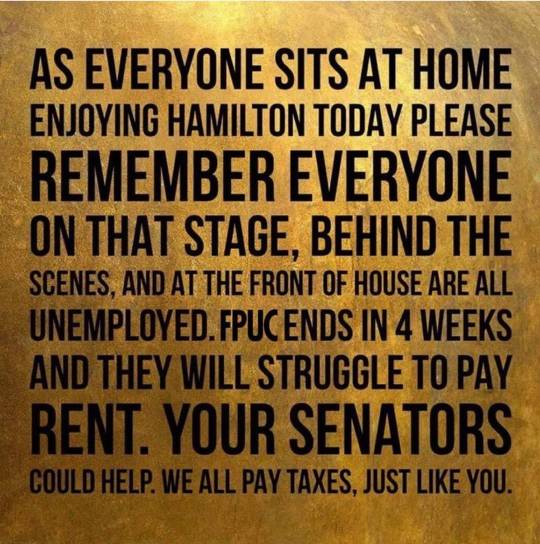
*taps the mic* Hey... this thing still on…?
I hope that everyone had a wonderful Hamil-weekend!
Once upon a time, I'd thought that I'd return here if a big event happened. Something like, say, the release of a movie.
I never imagined that said big event would be entirely overshadowed by a pandemic incapacitating the country, which had in turn allowed for a long-overdue reckoning with the U.S.'s foundational racism to burst forth, and, individually, being just a week out from being surrounded by the police who, it turns out, would attack the queer liberation march literally on the day of Pride while I was taking a breather on the steps of the Public Theater, which was just one more incident in an ever-growing litany of bald-faced police overstep beyond the usual racial inequity, to the point of snatching a well-known musical theater composer from her own front stoop for having the audacity to cheer in support of protesters.
There are still parts of Hamilton that are amazing.
It's also amazing and wonderful that so much of Hamilton is NOT revolutionary. The cultural conversation is on the move. And the arts play such a huge role in that movement.
On Friday the 13th of March of this year, the NYC theater industry closed for the foreseeable future. Theaters elsewhere in the country have followed. On a human level, almost everyone involved in the industry is unemployed: actors, dancers, singers, musicians, stage managers, backstage crew, electricians, carpenters, stitchers, props artisans, designers, writers, directors, choreographers, box office staff, ushers, janitors, security, marketing, scenery building shops, and more. Adjacent businesses, whose clients are theatre workers and theater audiences, are affected as well: restaurants, bars, the bodegas with the cute cats, materials suppliers, and more. On a cultural level, even if there were enough "other jobs" for everyone to go to, what will be left when performance is able to resume? I fear that the "unpaid internship" will become writ even larger than normal: the people who will have the means to stay in the industry will be reduced down to an even more exclusive class than they are currently.
This has not been the case globally. In some countries, the pandemic is sufficiently under control for even professional productions in big cities to continue with safety measures in place (e.g., The Phantom of the Opera in Seoul). In some countries, the government is giving robust financial support to the arts (e.g., Britain announcing a nearly $2 billion stimulus for the industry).
The Arts in the U.S. need your support. If you can donate, then donate. But perhaps even more important: contact your senators and other officials to encourage them to support measures that will keep artists and the arts going. And be the change within your own families and communities to help fight the view that the arts are disposable. If someone has read a book or listened to music or Netflix-and-chilled or watched a Marvel movie, then they are benefiting from the arts – not just the material that they are directly consuming, but the community theater or PBS broadcast that led that movie star to start acting in the first place. (To say nothing of: remember all of the tweets of people saying that the Watchmen series was how they learned about the Tulsa Massacre?)
& I’m sure that A.Ham would appreciate the fact that the Arts & Entertainment industry accounts for $877.8 BILLION in value and 4.5% of U.S. GDP.
ExtendPUA.org/entertainment is a good place to start. You can find information on more ways to be an #ArtsHero here: https://docs.google.com/document/d/1tJFHBXZYZfHG86l4jr2dFFS-KBtUkdcfewHDl9iVUyI/edit (And remember, try to personalize the subject line and at least a couple sentences of any auto-generated emails so that they don't get flagged as spam!)
Check out See Lighting Foundation to support immigrant theatre artists, who are particularly vulnerable right now. Between their specific risks/futility in applying for government benefits, the increasingly onerous visa processes, & the simple fact that theatres in other countries are not facing the shitshow faced by theatres here, many immigrant theatre artists are looking at leaving the U.S.. It will be, truly, our loss.
There is a lot of work happening within the industry right now that isn't a product for immediate public purchase. Grassroots groups organizing for more equitable labor practices. Forums hosted to root out and start healing the racism within the industry. (The Broadway Advocacy Coalition, of which Hamilton alum Amber Iman is a co-founder, has been doing great work.) Works in the early stages of creation that hopefully have actual stages ready for them when the time comes. Be proud to support all of this.
Also: if you are a young BIPOC stage manager (or even just stage management curious!), please feel free to reach out to me if you’d like to chat about the profession, including grad school and NYC specifics.
Black lives matter. This land is stolen from Indigenous people who are still here. Stonewall was a riot. Wear a fucking mask.
#hamilton#hamilfilm#broadway#theater#theatre#nyc#artshero#and yes fine okay i did mix drinks when my roommate and i watched it and called them History Is Happening With Manhattans
339 notes
·
View notes